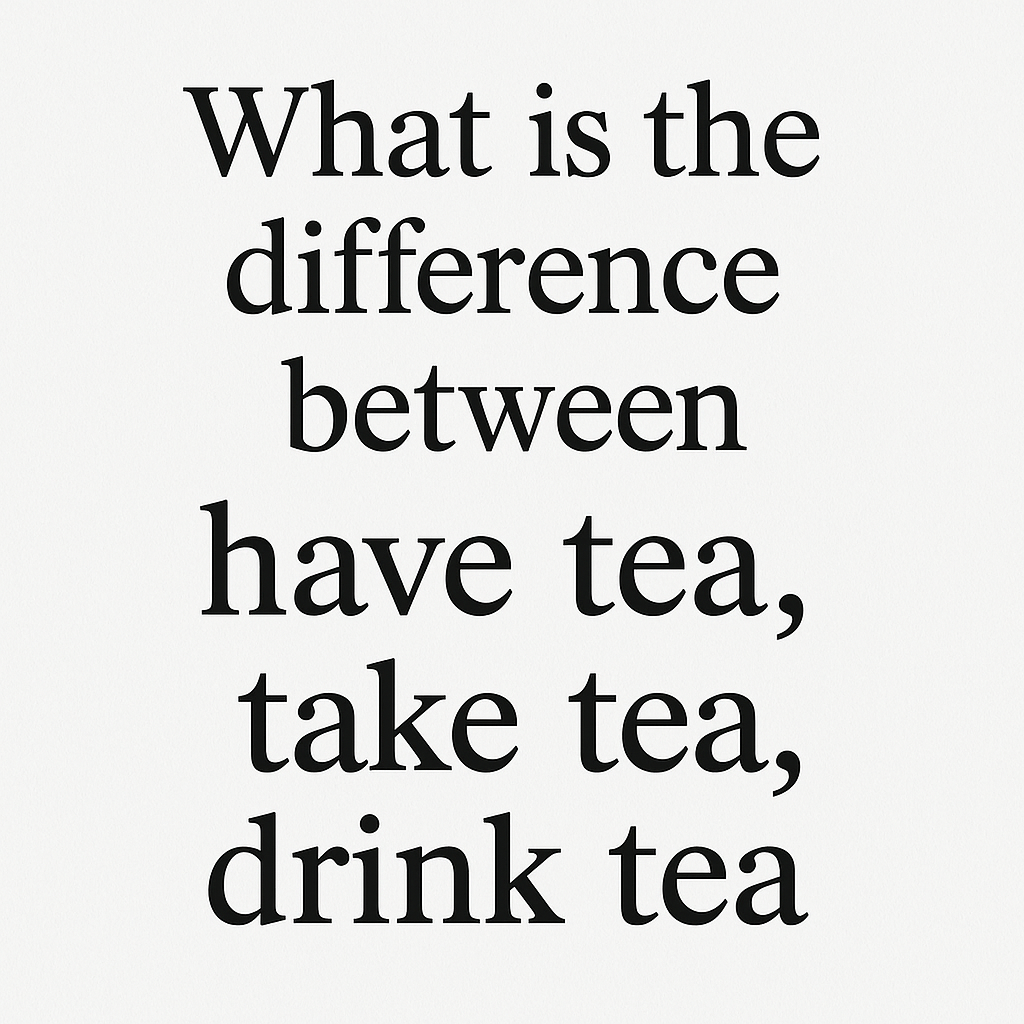Difference Between Have Tea, Take Tea, and Drink Tea-Special Grammar Case (2)
English often surprises learners with multiple expressions that seem similar but convey subtle differences. One such trio includes have tea, take tea, and drink tea. Though they all involve consuming tea, each phrase reflects a different nuance in usage, tone, or region.
Let’s explore these three expressions in detail.
1. Drink Tea – Focus on the Action
This is the most literal and universal phrase. It describes the physical act of consuming tea.
Examples:
- I like to drink tea after lunch.
- She drinks tea every morning.
The phrase simply refers to the action of putting tea in your mouth and swallowing it. It carries no extra social or emotional meaning.
2. Have Tea – Casual and Common
Have tea is widely used in both American and British English. It may refer to drinking tea but often implies a break, snack, or even a light meal.
Examples:
- Let’s have tea together this evening.
- We had tea at 4 p.m. with sandwiches.
Here, tea is more of an event or activity. “Have” makes it sound social, informal, and often includes food or conversation.
3. Take Tea – Formal or Traditional
Take tea is more common in formal British English. It sounds refined and is often associated with traditional rituals like afternoon tea.
Examples:
- The guests took tea in the drawing room.
- She invited us to take tea at the manor.
“Take tea” emphasizes tradition and elegance rather than just the act of drinking.
✔️ Summary
- Drink tea = literal, simple action.
- Have tea = casual event or snack time.
- Take tea = formal, elegant occasion.
So next time you’re planning to enjoy a cup, think about whether you’re going to have one, take one, or simply drink one—your choice sets the tone.

The Inspiring Life of Hazrat Muhammad (PBUH): https://englishwithnaeemullahbutt.com/2025/05/02/inspiring-life-of-hazrat-muhammad/
William Faulkner as a Modernist Writer:
https://englishlitnotes.com/2025/06/01/william-faulkner-modernist-writer/
Emily Dickinson: https://americanlit.englishlitnotes.com/emily-dickinson/
Can animals be proper nouns?:
https://grammarpuzzlesolved.englishlitnotes.com/can-animals-be-proper-nouns-examples/
Discover more from Grammar Puzzle Solved by Naeem Ullah Butt
Subscribe to get the latest posts sent to your email.
